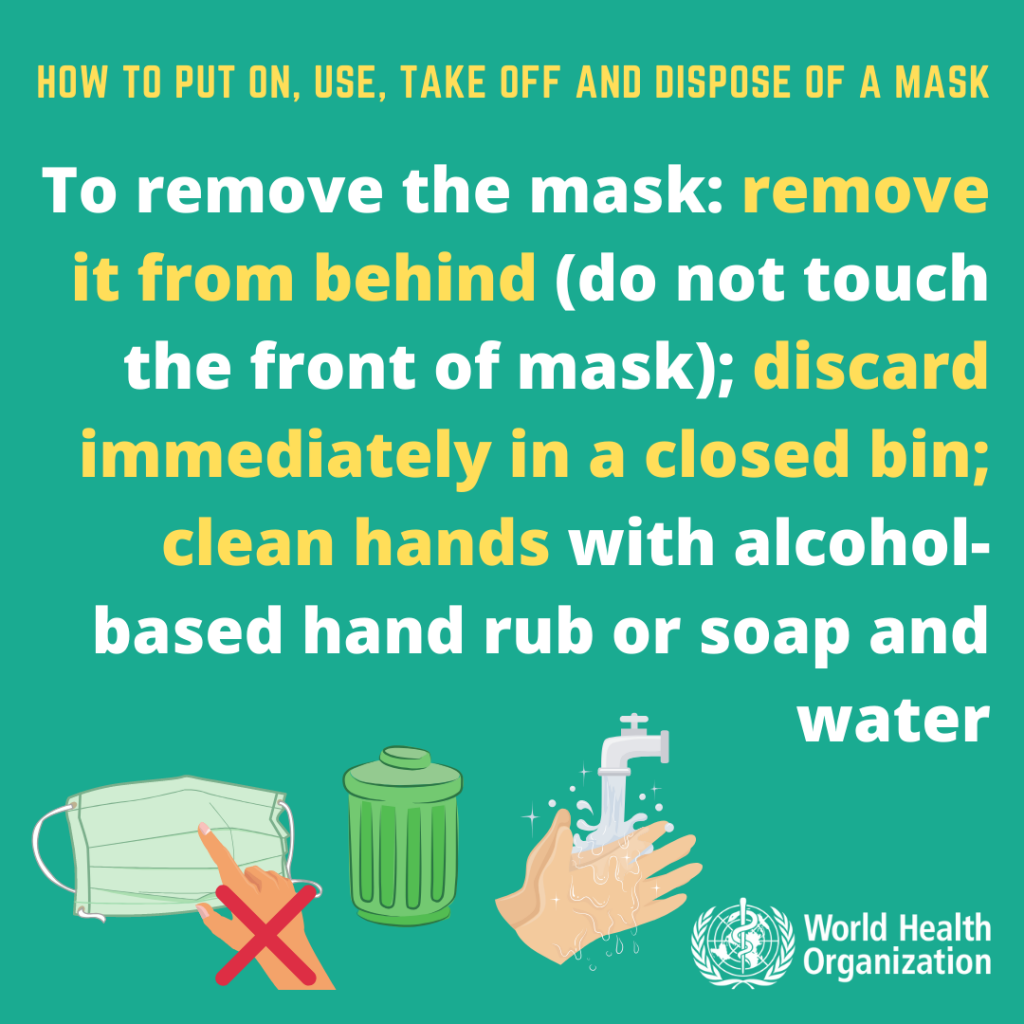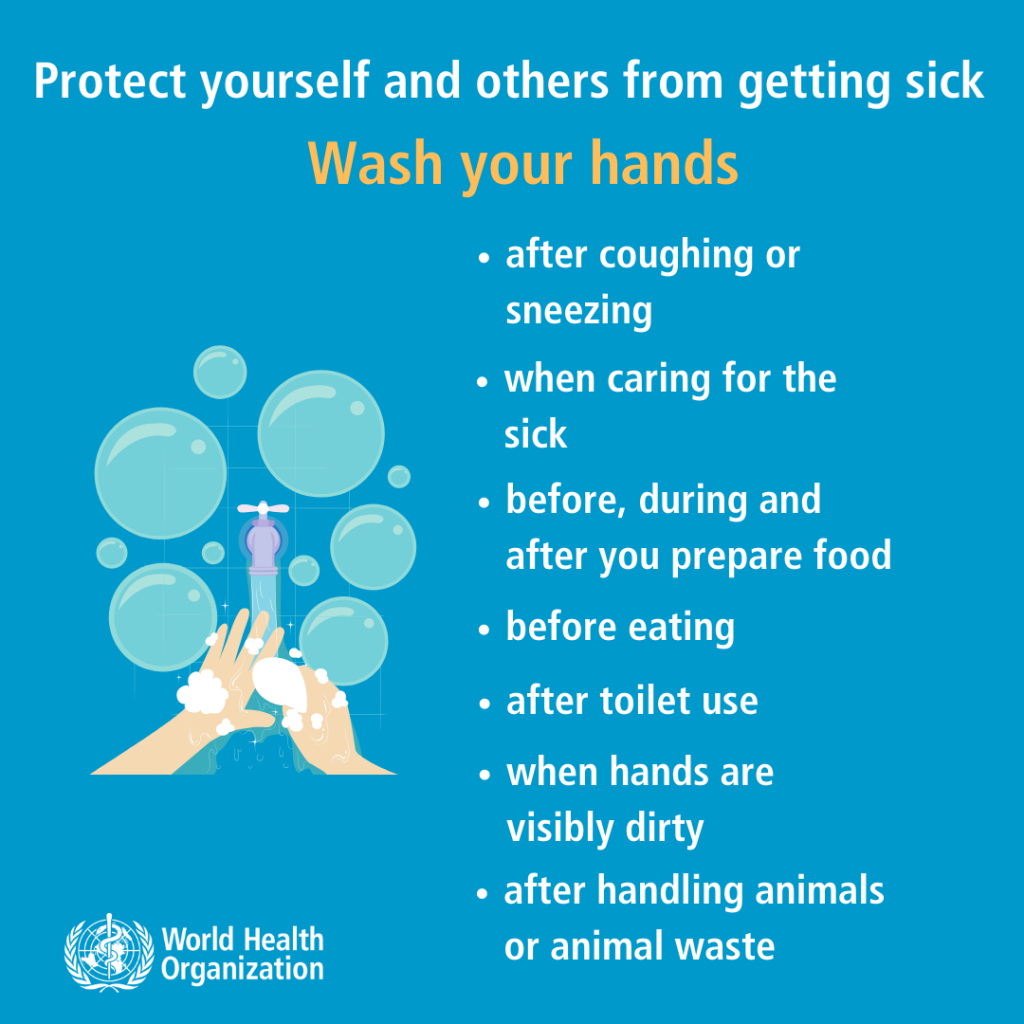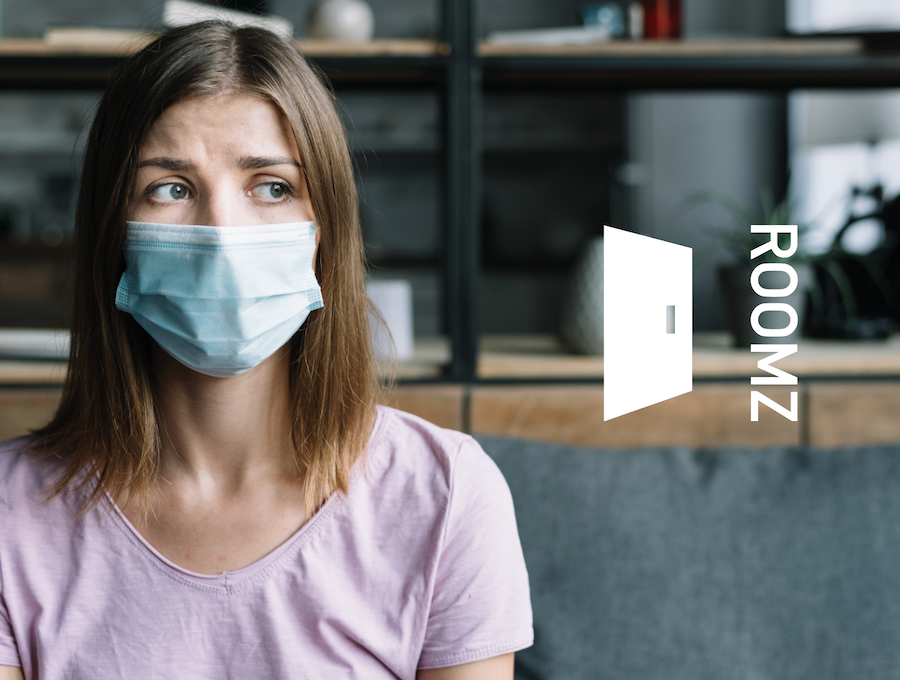Tips To Avoid Covid-19 Corona Virus
The Wuhan Coronavirus need no introduction. Here, we compile a list to avoid the Wuhan Coronavirus.
1. Personal Hygiene – Don’t rub or touch your eyes, nose and mouth. You may transfer virus from surfaces to yourself, vice versa. If you have to, wash your hands before and after with soap.
2. Wash your hands frequently with soap – advisable for a minimum of 20 seconds after going to bathroom, before eating, after blowing or digging your nose, coughing, sneezing and touching dirty surfaces.
3. Use alcohol-based hand sanitizer – min 60% of alcohol, when soap and water is not available.
4. Cover up – Cover your nose and mouth when coughing and sneezing with flexed elbow or tissue. Dispose the tissue immediately into a rubbish bin. Wash your hands.
5. Stay away – Maintain a distance with people who are sick, at least 1 meter (3 feet) from small droplets from coughs or sneezes.
6. Self quarantine – Avoid going out when you are not feeling well. Seek medical advice early if you have fever, cough and breathing difficulty.
7. Cook your food – Avoid raw animal products.
8. Cleaning – Clean and disinfect objects and surfaces regularly with household cleaning and spray products, especially those being used regularly.
9. Mask – Seems there is a debate going on, here’s the advice from WHO
Should I wear a mask to protect myself?
Wearing a medical mask can help limit the spread of some respiratory disease. However, using a mask alone is not guaranteed to stop infections and should be combined with other prevention measures including hand and respiratory hygiene and avoiding close contact – at least 1 metre (3 feet) distance between yourself and other people.
WHO advises on rational use of medical masks thus avoiding unnecessary wastage of precious resources and potential mis-use of masks (see Advice on the use of masks). This means using masks only if you have respiratory symptoms (coughing or sneezing), have suspected 2019-nCoV infection with mild symptoms or are caring for someone with suspected 2019-nCoV infection. A suspected 2019-nCoV infection is linked to travel in an area in China where 2019-nCoV has been reported, or close contact with someone who has travelled from China and has respiratory symptoms.

How to put on, use, take off and dispose of a mask
- Before putting on a mask, wash hands with alcohol-based hand rub or soap and water
- Cover mouth and nose with mask and make sure there are no gaps between your face and the mask
- Avoid touching the mask while using it; if you do, clean your hands with alcohol-based hand rub or soap and water
- Replace the mask with a new one as soon as it is damp and do not re-use single-use masks
- To remove the mask: remove it from behind (do not touch the front of mask); discard immediately in a closed bin; wash hands with alcohol-based hand rub or soap and water
(See advice on the use of masks)
What can I do to protect myself? Stay aware of the latest information on the outbreak by following World Health Organisation on health topic on Coronavirus
For more information, see the World Health Organization’s FAQ guide to get informed about the coronavirus.
Here’s additional tips on the personal hygiene which is probably worth taking note
Wash your hands whenever you can, 20-30 times per day if possible. Why?
Our hands touch objects hundreds of times in a day like door handles, the toilet paper in the loo, toilet door/water heater knobs, toilet taps/surfaces, tables/chairs in eating places, the elevator buttons in our apartment, office building or hotel including touching money, keys, handphones, laptops, computer keyboard, electrical switches, electronic gadgets, earphones, bus, train, car or aeroplane seats, restaurant menus, spoons/forks/chopsticks, rice scoop, food gripper/tray, trolleys, car steering wheel, car lock handles, car seat buckle, safety belt, surfaces and etc. Then, inevitably the hands touch the face or hair hundreds of times a day. Remember viruses, germs and bacteria can enter through your eyes, nose, mouth, mucous part of your ears and even wounds, cuts, rashes, pimples/acne of your skin. *That is how one gets infected, not just with the Coronavirus, but myriads of other germs and viruses!
Do you know that the hand drier in toilets has the mist germs and viruses in the whole toilet? More than the toilet bowl. Better to wipe your hands on your clothes than to dry them with the hand drier. Ever seen the cleaners wipe these hand driers especially the air vents? Never!
For those flying on an airplane.
According to David Powell from International Air Transport Association (IATA), the air supplied in the cabin is 99.97% free from viruses and particles. Furthermore, virus does not have a long life span on non-living surfaces. The highest risk comes from other people, like shaking hands.

Keep yourself hydrated if you are mildly sick, stay at home and rest. If you are concerned about your symptoms, you should see your healthcare provider.
We wish you to stay healthy and safe!

